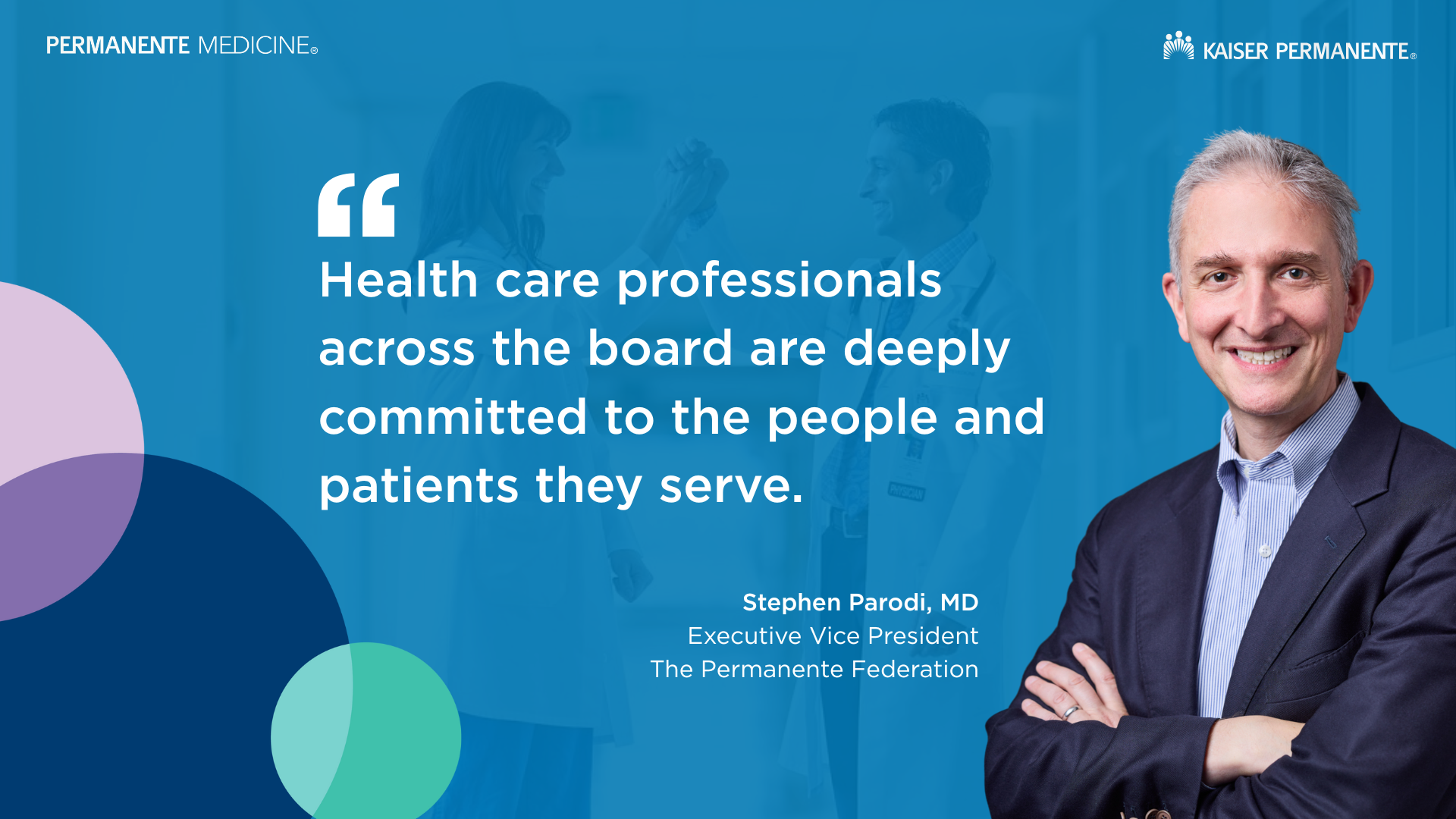Explore valuable lessons learned from Permanente physicians in 2025's rapidly changing health care landscape.

This World Heart Day, physician leadership can boost awareness among women and save lives

I became a cardiologist because the heart is an endlessly fascinating organ. It has a motor, valves, plumbing, and electricity. It’s essential for human life. It’s also extremely fragile — the reality of a broken heart extends far beyond the sonnets — yet it can be healed and made more resilient.
I wasn’t in residency training for long before I realized that most cardiologists don’t look like me. But many of our patients do, as cardiovascular disease is the leading cause of death among women in the United States — significantly higher than breast cancer.
It’s something many people don’t realize, and, like most health issues, the threat is even worse for women of color. One half of Black women in America are at risk for cardiovascular disease, and they are more likely to die of heart disease at a young age than white women. An astounding 44% of women in the U.S. live with high blood pressure — also known as hypertension — but only 1 in 5 have it under control. Hypertension is a major contributing factor for heart disease.
Our physicians lead the way in heart health
Fortunately, Kaiser Permanente has made and continues to make great strides in this area through high-quality preventive care and physician leadership. It’s one of the things that brought me to the organization over 20 years ago. Routine blood pressure and cholesterol checks reduce the incidence of heart disease. The hypertension control rate for Black members in Kaiser Permanente Northern California is nearly 77%, compared to the national average of approximately 40%. In fact, our hypertension control rate for Black members is even above the nation’s 90th percentile blood pressure control rate for all races. According to the National Committee for Quality Assurance, we are among the nation’s leaders in controlling high blood pressure. And thanks to the efforts of our physicians, Kaiser Permanente members are 33% less likely to die prematurely of heart disease compared with nonmembers in their community. We also help members and patients with heart disease live longer, healthier lives by using the latest evidence-based, personalized care and treatments.
Related story: “Kaiser Permanente plans to offer remote blood pressure monitoring for all pregnancies”
As the United States recognizes World Heart Day, physicians have an opportunity to play a leading role in understanding of the risk factors and symptoms of cardiovascular disease in women and dispel the longstanding myth that heart disease — and heart attacks — mainly happen to men. We can protect women’s health and well-being by knowing and sharing the primary symptoms associated with cardiovascular disease, especially those that may present differently in women.
As Kaiser Permanente physician leaders and practices have demonstrated, greater awareness leads to prevention and treatment, and ultimately saves lives.
It’s important to consider women’s individual risk factors for heart disease — such as their own medical history and any family history of diabetes, high blood pressure, or heart disease. Proactively discussing these factors with women may help them better understand their risk level for developing cardiovascular disease and the need to monitor for symptoms.
It’s not uncommon for women to put their health second to just about everyone and everything else. Studies show this to be true, especially among women who are family caregivers. As we often hear on airplanes, put your own oxygen mask on before helping others. We must encourage women to not put off their needs or ignore health concerns, and to seek regular medical care. Even without heart disease, conditions like anxiety, depression, lupus, or rheumatoid arthritis can negatively impact cardiovascular health.
How can women address risk factors for heart attack and cardiovascular disease? Prevention is the best medicine. Kaiser Permanente builds prevention into primary care so physicians and their patients can work together to prevent, monitor, reverse, or control core risk factors for cardiovascular disease like high blood pressure, high cholesterol, diabetes, smoking, stress, obesity, and a sedentary lifestyle.
Related story: “Maria Ansari, MD, talks value-based care, physician burnout”
The strength of our heart — that elegant, yet powerful organ that is the essence of life — must not be taken for granted. To learn more about how physician leadership helps Kaiser Permanente excel in state-of-the-art cardiac care, visit “At the heart of quality cardiac specialty care – Permanente Medicine.”


